Bachelor of Applied Sciences in Instrumentation is a course to train students thoroughly with working, maintenance and application of a multiple variety of instruments viz. electrical, electronic, analytical, optical, nuclear and biomedical instruments and microprocessors also to train them in achieving technical expertise in instrumentation. Instrumentation engineering is a specialized branch of electrical and electronic engineering and it deals with measurement, control and automation of processes.
Imagine a world without instruments. It would be like traversing into a time that probably goes even beyond the Stone Age. Man has always been fascinated towards instruments and the
quest to invent and innovate on new instruments has pushed mankind beyond barriers to an age where instruments have become a part and parcel of the life. Today, we find instruments at home and at workplace, and this was possible only because of the science instrumentation amd that is where this course states its importance.
Course Structure:
The instrumentation course starts with the first semester having simple circuit and network analysis, nuclear, optical and thermal physics (formally known as applied Physics), Mathematics, organic and inorganic chemistry and practicals based on them in the first semester.
In the second semester the students are taught C language with Data Structure, Instrumentation theory, Mathematics, a basic introduction in Biology and genetics and practical based on these topics.
In the third semester students are taken to a higher level of electronics with Di gital Electronicsand Analog Electronics. They are also taught Biochemistry, Signal system or Mic robiology & Genetics and practical based on these topics.
In the fourth semester commen ces with training the students for the industry ith industrial instrumentation, analog electro nics is further taught with electronic instrumen tation practical based on these topics with sum mer training also being provided.
The fifth semester has teaching on Microprocessors and analytical instrumenta tion, Electrical machines and control systems and biomedical instrumentation is also taught with practical based on these topics.
The final or sixth semester further teaches Analytical instrumentation, Biomedical nstrumentation, quality control and microcontrollers with practical based on t hese topics.
Scope:
Instrumentation graduates are required in number of heavy R & D units of all th e big guys in the arena of production and design. They are also recruited by the steel industry, c ement and raw materials industries due to an o ngoing evaluation of the quality required in these industries. An amateur instrumentation trainee can earn 15,000 to 20,000 p.m and can go upto as 4 lakh.
An Instrumentation graduate can also pursue higher studies such as
1. M.Sc (Analytical Instrumentation)
2. M.Sc (Biomedical Instru mentation)
3. M.Sc (biotechnology)
4. M.Sc (Genetics)
5. M.Sc (Electronics)
6. M.Sc (microbiology)
7. M.Sc (Environmental Sciences)
8. M.B.A & M.C.A
9. Masters in Bioinformatics
Picture Courtesy : Google
As the days of XIIth board exams approaches, the advertisements of various coaching centres reaches its peak for preparing you to get into the professional courses offered by DU . BBE holds a place amongst them. Bachelors in Business Economics or BA (Honours) Business Economics is a three year undergraduate professional courses offered by the faculty of applied social sciences and humanities under the University Of Delhi.
Started in 1995 in two colleges , BBE has emerged as an popular course of the University Of Delhi. The course is now offered in 10 colleges namely :  Bhim Rao Ambedkar College
Shivaji College
College of Vocational Studies
Gargi College
Lakshmibai College
Maharaja Agrasen College
Ram Lal Anand College (Evening)
Sri Guru Gobind Singh College of Commerce
Sri Guru Nanak Dev Khalsa College
Sri Guru Tegh Bahadur Khalsa College
Any student with 60% aggregate in class XIIth with mathematics and english is eligible to apply for the course. Also a minimum of 60% in economics is indispensable for admission in BBE. The 550 seats in BBE are filled through 50% weightage to the entrance test and 50% weightage to the marks scored in class XIIth.
The six semester programme is designed to use the economic applications in working of an enterprise. Basically this course a mix of intellectual growth and corporate exposure which includes a study of economics, econometrics besides seven other specializations such as finance, marketing, quantitative techniques, international business, services (both financial and non-financial), entrepreneurship and computers.
The industrial trips gives an opportunities to the students to look beyond the academics and understand the practical aspects of a business. Various inter-college events and festivals are also organized for the overall development of a student in different colleges.
Often compared with Economics Honours , it is a more applied course while the former is a broader and theoritical version involving core study of Economics.
The most important yet dilemmatic factor for a student is the future prospects of BBE . Most of the students are not very clear with the prospects of BBE and most of them have a question bothering their minds – “What after BBE ? “.
A BBE graduate can easily fetch jobs in field of insurance, finance, consultancy, banking, stock markets, advertising and market research. Also they can apply for Indian Economic Services (provided they opt for post graduate degree in Economics or Business Economics), Reserve Bank Of India and other Govt. exams including Civil Services etc. The central placement cell offers decent placements to the students and the on campus recruitments record good placement in MNC’s and in leading corporate firms like Capital IQ, DTZ, E Value Serve, Hewitt India, Reliance Life Insurance, Gopal Group, BIFM, Adroit Financial Services .
The BEPC (Business Economics Placement Cell) is being planned to maintain a good record of placement for the students pursuing this high demand professional course.
For further studies a student can opt for masters in business economics , economics , business administration , commerce law etc.
If you have an soft inclination towards economics and are interested in gaining knowledge in diverse fields beyond economics , BBE is an apt option for you .
With a decent placement record , BBE has turned out to be one of the most sought courses of the University Of Delhi .
If you aspire to become a Business Economist, you could proudly say “Your Economy Is My Business!”
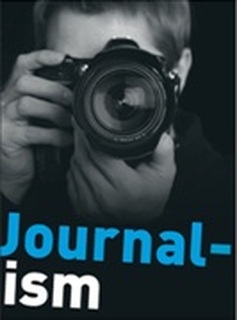 Many would agree that journalism is not just a job- it’s a career! It’s one such field which breaks the norms of being a 9 to 5 job. One can look at journalism in many ways however the ideal is to inform the intended audience about topics ranging from political
affairs to corporate advancements, cultural aspects of the society and so on. Journalism expands to editing, photojournalism, and documentary. This field as a career may seem extremely alluring but like any other option, it does come with its own set of pressures. Journalists swear by the notion,“Being at the right place at the right time” along with managing deadlines and indefinite working hours. Add to that the limited number of quality institutes available to train the journalists of tomorrow. Delhi University offers B. A.(Hons.) Journalism in five colleges: Delhi College of Arts & Commerce (31 seats), Kamla Nehru College (39 seats), Lady Shri Ram College (23 seats), Maharaja Agrasen College (46 seats) & Kalindi College (46 seats). DCAC, the pioneer in this field, initiated the course in 1989. Since then, the course has created a brand name and is considered to be one of the best across the country. The three-year duration course offers extremely interesting subjects ranging from Political Sciences to History, Economics to Law, and Ethics of Journalism to Mass Communication. The syllabus is at par with the universities that offer the same course at Post-Graduate Level. Infrastructure is the only arena where the university can be given any negative marks. The lack of first-class labs and equipments persist to be an issue. Only MAC & LSR can boast of a fine Journalism Lab. Nonetheless, students are compensated with workshops, lectures from media professionals, opportunity to attend press conferences etc. The faculty across all colleges also consists of established names from the industry.
 Common Journalism Entrance Test (CJET) began in the year 2011 and has successfully helped passionate students to pursue their dreams despite their performance at the school level. The fact that an overwhelming majority of the present first-years have a science or a commerce base proves that the course is a hit amongst all. The process of admissions & counseling is transparent and merit does not go unrewarded. The Entrance exam is usually held in the last week of May or first week of June. Candidates who qualify are interviewed followed by counseling. For more information log on to the official admission site: http://journalismdu.admissionhelp.com/DUfassh/login.aspx. The future prospects of this course are massive as it not only provides one with a green card to the newspaper & electronic media field but also provides one with a choice of getting into P.R., Advertising, Film-making, Editing and Photography. Most colleges have P-cells which get in touch with top-notch media companies in order to provide the students with the best opportunities. DU provides a certain class of trained students that are known to leave a mark. Hence, placements are almost guaranteed as companies yearn for DU students. Preeti Dahiya, alumni of KNC batch ‘05, feels that placements should not be a cause of worry provided that the students are sincere and fairly talented. Presently, she’s a freelance journalist as well as a guest lecturer at DCAC and Kalindi College. Dahiya has worked with DD, New X, and Headlines Today in the past. The university has churned out a huge number of talented and fairly successful media professionals in the last decade. Rahul Kanwal, Monika Kshatriya, Anibran Roy, Shalini Langer , Rishabh Gulati, Shruti Goel, Priyanka Chandra, Garima Malhotra, Nidhi Razdan,Shweta Rajpal Kohli to name a few. The Journalism Department of almost every college is popular for their fest, newspaper issues and annual journals. Even though the course intellectually challenges an individual, it stands out as one of the best across the university. There is a certain kind of dedication, respect and awe associated with the course which makes it worthwhile. So, the next time you see a young journalist facilitating a debate or you come across an article which compels you to think & question, do a background check and chances are he/she may just be a product of Delhi University. Manav Seth
Correspondent
University ExpressPhoto Credits : development.thinkaboutit.eu ; google search
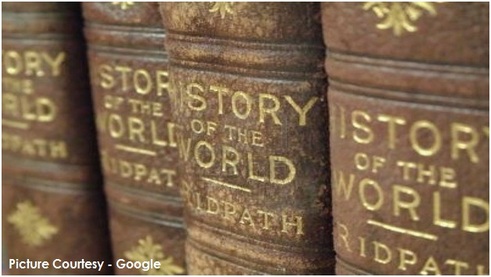 The study of History as an academic discipline is valued by those who want to learn lessons from the past. The three year History Honors course provides a wide range of ideas and concepts that cut across disciplinary boundaries. It has not a variety of subjects which has to be studied; it deals with just “HISTORY” which is then further sub-divided into various categories according to the period of time and the papers which one has to study in these 3 years are as such :-
FIRST YEAR
History of India (beginning to c. 750)
Social Formation and the Cultural Pattern of the Ancient and Medieval World.
Concurrent Papers
SECOND YEAR
History Of India (c.750 to 1550)
Rise of Modern West.
History Of United States Of America (C. 1776 – 1945), History of the USSR (c. 1917- 1964), History of Africa (c. 1500 – 1960s), History of Southeast Asia – The 19th & 20th Century (Students can take any one subject)
Concurrent Papers
THIRD YEAR
History Of India(c. 1550 to 1750)
History Of India(c. 1750 to 1950)
History Of China And Japan (c. 1840 to 1949)
History Of Modern Europe (c. 1780 to 1939)
Concurrent Papers.
There are various colleges in Delhi University such as Lady Shree Ram College, St. Stephens College, Daulat Ram, Hindu College, Hans Raj College, Shaheed Bhagat Singh College, Satyawati College, Ramjas College, Miranda House College, Kirorimal College and many others which provide the students with this course. The best part is, this course is easily available to all mediocre students as the cut off for this course is also not high as compared to the other courses in the University. But, yes because of the ever increasing competition amongst the youth, the cut off list for this course is even getting higher and higher with every passing year.
 As far as the scope of this course is concerned, History Honors is not having many great scopes as the other courses provide but one should never forget that nothing in this world is small or useless, everything has its own value, it’s true that with just an honors degree in history one cannot get everything they wish to have but with the help of this degree one can definitely find their ways which will lead them to success. The study of history is rewarding for its own sake, as well as providing opportunities for those seeking more tangible benefits.
The History Honors course is a valuable preparation for a whole host of courses and careers after graduation. The training in the study of history is a lifelong asset. Students who have studied history have excelled in various walks of life and some of the very popular names are –
Gauri Khan- She Pursued History Honors from Lady Shri Ram College and is presently a Film Producer and Owner Of “ Red Chilies Entertainment”
Sheila Dixit – She is a graduate with masters in History from Miranda House. She is an Indian Politician who has served as Chief Minister of Delhi since 1998
Niret Alwa- He is a graduate In History from St. Stephens college and presently he is an Indian television and producer, he is also a co-founder of Miditech- A television software company, but he is most famous for producing “Indian Idol”
Manoj Joshi- After graduating fin history from St. Stephens College, He is presently an Indian Journalist and Author and working with MAIL INDIA as Comment Editor.
Ram Narayan Rawat – He is currently a historian of Indian Subcontinent and a professor at “University Of Delaware”. He Did his B.A Hons (History) and PH. D from Delhi University.
Sagarika Ghose – She is an Indian Journalist, News Anchor and an Author. She did her graduation In History honors from Delhi University.
Shashi Tharoor – He is an Indian Member of Parliament from Kerala who completed his graduation in history from St. Stephens College, Delhi University.
Dr. Vivek bhandari. - He did his bachelors and Masters in History from Delhi University. He is well known as the 11th director of “Institute of rural management Anand” a premier management school in India.
It has been seen that Majority of the students with the ambition of becoming a Civil Servant do this course as it helps them a lot while preparing for the UPSC examination. Else wise, there are many other scopes which can be taken up. After getting a degree of History Hons, one can be a teacher, lecturer, professor, an archivist, an information manager, librarian, politician, public relation officer and record manager. One can even appear for banking examinations, or work with newspapers or magazines. The combination of Journalism with History Hons also provides a great scope. After pursuing this combination, one can even apply for jobs in renowned magazines like - National Geographic Magazine, Outlook and Business India.
Hence, History Honors is certainly a great Course to be taken up by the students. It provides a student with uniqueness as only a few people have the courage to take and study this course, but the ones who take this course can never regret because it helps a person reach heights. History is always kind to people who intend to write it.
Aditi
Correspondent
University Express
 B.com(H) is a 3-year undergraduate degree designed to inculcate Business Acumen in students. The course includes subjects like cost accounting, financial
accounting, law, tax, economics, organisational behaviour, management, etc.
Through this course, one can specialize in fields like Accounts and economics.
Students can also pursue courses like C.A., C.S., ICWA along with B.com(H).
Some students confuse B.com(H) with B.com(prog.) and perceive them to be equivalent. But the difference lies in the fact that B.com(prog.) gives only an overview of all the subjects taught in the Honours course and ofcourse Honours provides specialization and core knowledge about the subjects. Thus, honours can be seen as wider in scope and the industry demand for this course is relatively more.
As the competition among students is rising, the cut offs every year are also rocketing high and hence, it is becoming tougher to get admissions in a course like B.com(H) in top colleges of delhi university. So a student aiming for B.com(H) from colleges like SRCC, Hansraj, Hindu, LSR has to secure atleast a bove 95% in XII and also having Maths is a pre-requisite one has to take care of.
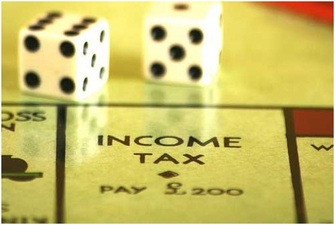 As far as the scope of this course is concerned, B.com(H) has a great scope but one should keep one thing in mind that just after doing graduation one cannot expect to get the best jobs in the market but one can gain experience and eventually grow in the industry by taking up a job.
Coming to the Jobs!
What one looks for while taking up a job? Perhaps the profile or the salary package a company is providing. But what we must be looking up for is the area in which we have our interest. If you are interested in work which involves processing of payrolls, administration of accounts or insurance, you can probably join a KPO(knowledge process outsourcing) at entry level positions. If you are good at figures, then you can join accounts assistant or auditing department of various firms.
Therefore, it would not be wrong to say that B.com(H) definitely provides an edge over other commerce courses and prepares you for many job profiles simultaneously but what differentiates one student from the other is the application of that knowledge.
Mehek Sachdeva
Correspondent – UE
 The day an 18 year old steps out of his world of controlled freedom, he feels he has had a hard time doing as directed by his parents, seniors and guardians. But he does not realize the importance of their judgmental abilities until he himself steps into their shoes and stands amidst the array of decisions to be taken. After the sudden realization you might have experienced after reading the previous statement, lighten up. This is just to make you feel that you are grown up and can take your own decisions.
Before every other twist and turn that is added to your life after you leave school and enter college there is one very important issue to be addressed. WHAT IN COLLEGE? (By what I mean what course and not the other possible thoughts that you might have had:P)
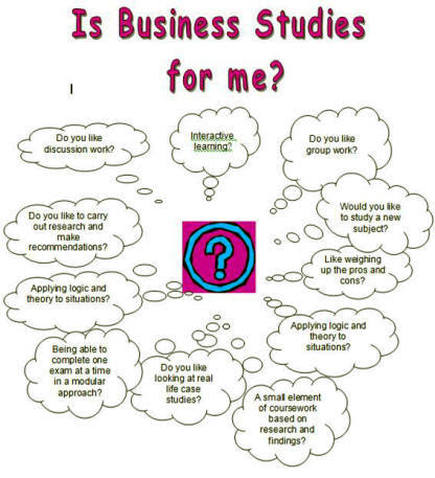 Apart from the very sought after and well known courses like B.Com(Hons), B.com (prog), B.A Hons(Economics), B.Sc hons (Maths) and a lot of others , there is one course that definitely deserves a lot more limelight than it actually gets-Bachelor of Business Studies(BBS). Formally it is
the only undergraduate management course offered by the Delhi University in which you can secure admission by way of 3 levels of rigorous testing-
joint entrance test, group discussion and personal interview. And informally bole toh if you have that crazy instinct in you of being an all-time multitasking business fellow, BBS is probably the best course to land up into.
What? When? Where? Why? How? Etc….etc.….. I know these are the first things to pop up into your mind.Wait. A story that unfolds in parts is more interesting and transfixing.:)
First of all What?-Bachelor of Business Studies is a three year full time professional degree Undergraduate program, that is approved by the University Grants Commission and Delhi University (DU). So don’t worry
you’ll be under the DU umbrella.
Where?–The course is offered at 3 colleges in the Delhi University-Shaheed Sukhdev College of Business Studies (SSCBS/CBS), Deen Dayal Upadhyay College (DDU) and Keshav Mahavidyalya(KMV). Since CBS
was the first institution to initiate this sort of a curriculum, it is the FATHER OF BBS and is best known in the University for imparting management education.
 How? After having done through the stressful boards, don’t get happy that sooner. Studies haven’t still left your side. One might call this as
a part of studies but I call it aptitude that you don’t mug, you learn it. 12 th class students can apply online for the JOINT ENTRANCE TEST and can seek admission to 3 courses altogether –BBS(offered at the above 3 colleges), BFIA (bachelor of finance and investment analysis offered only at SSCBS) and BBE (bachelor of business economics offered at several colleges in DU).
Entrance test even after 12th boards?Really ?
Fortunately as well as unfortunately yes. Unfortunately because I know it comes as a shock to those who felt books are a thing of past now. And fortunately yes because it is only this extra aptitude that gives you an extra edge over the remaining undergraduate students in DU.
After clearing the entrance, the shortlisted candidates are called for Group Discussion and Personal Interview. Finally a rank is calculated on the following basis:-
50 % weightage is given to the joint entrance test score
30% weightage is given to the 12 the class board results.
10 % weightage is given to group discussion and personal interview each.
On the basis of this score final admissions take place. The entrance takes place in the first week of June and results are also declared quite soon. Out of about 15-20000 applicants each year, only around 300 students are selected. So the pick up ratio is completely stringent and qualitative.
Why?
For me the reason was to explore a new way-different from what others were doing. Each one might have his/her own reason. So peep into yourself and find the reason. The college and course have lots in store for you. So prepare yourself and then you will be warmly welcomed.
Future prospects?
BBS at CBS is renowned in the entire DU for excellent placement records. 5 years down the line you might find yourself seated in a comfortable armchair as the CEO or some senior executive at some corporate biggie likeBain Capability Centre, CBRE, AT Kearney, McKinsey KC, Inductis, and FuturesFirst etc.
Take a smart and informed decision. Good luck.:)
Rashi Arora
Correspondent – UE
|

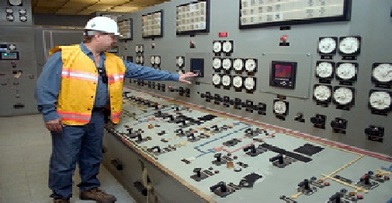














 RSS Feed
RSS Feed